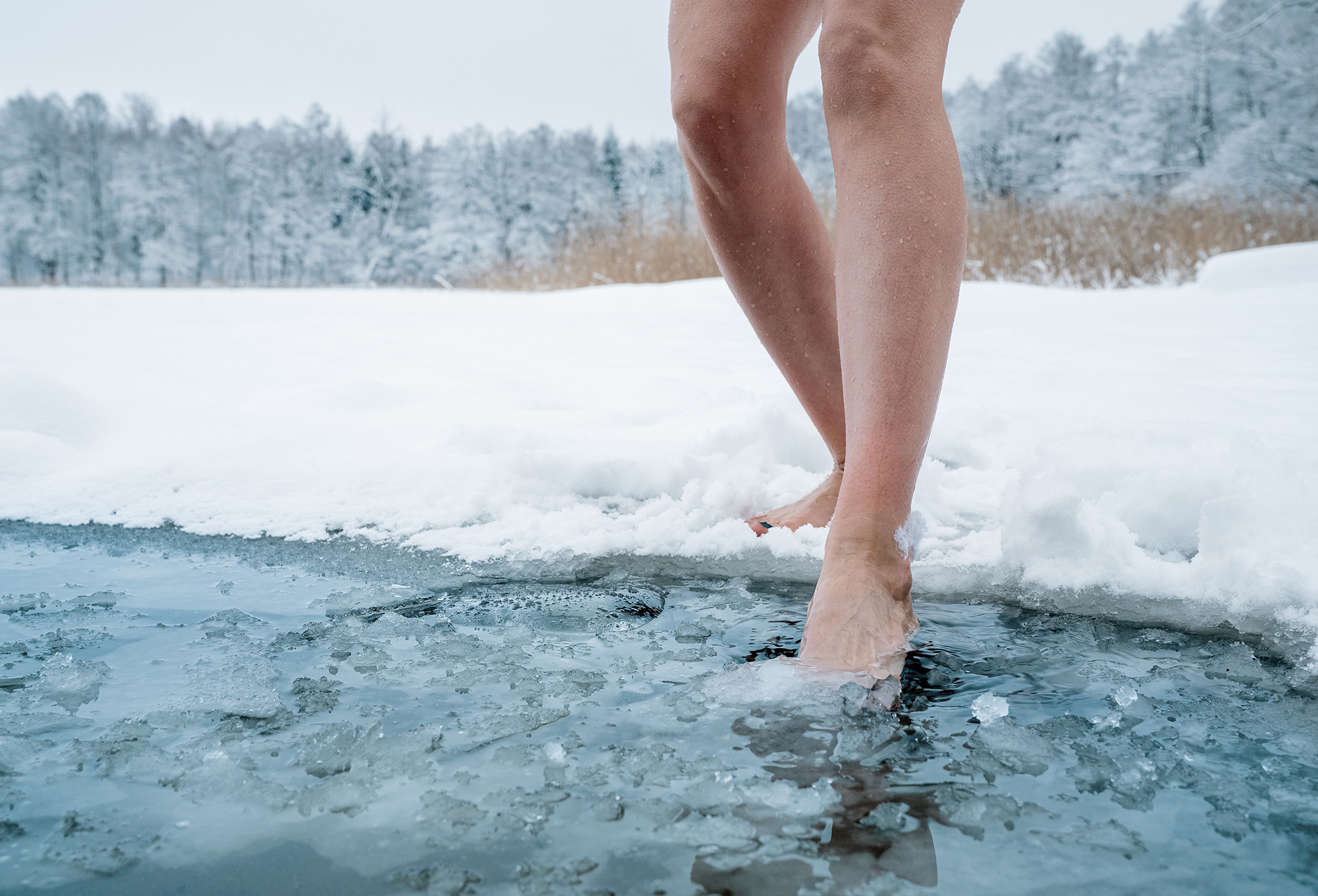What Science Says About Cold Plunges and the Gut
By Jamie Bussin, featuring Alex Martinez
As temperatures drop and winter sets in, many of us start to notice changes — dry skin, tighter joints, lower energy. But what about our gut? It turns out that cold weather may affect more than just our mood or metabolism — it may actually change our gut bacteria. I spoke about this with health and wellness industry insider Alex Martinez on Episode #412 of The Tonic Talk Show/Podcast
Our gut is essentially an environmental sensing organ. In other words, it’s one of the main ways our body interacts with the world around us. That means, yes — the cold can influence what’s happening inside our digestive tract.
“Cold temperature absolutely impacts the gut,” says Martinez. “And vice versa — the gut helps determine how well our body tolerates the cold.”
Cold Shock: When Your Gut Freezes Too
Before you rush to your nearest ice bath, it’s worth understanding what actually happens when we’re suddenly exposed to extreme cold. Martinez gives a vivid example: imagine walking across a frozen lake and falling through the ice. The body’s immediate reaction is a powerful surge of stress hormones — adrenaline, cortisol, and others — that prepare you to survive.
That same response also affects the gut. “In that acute cold shock, blood flow shifts, digestion halts, and your gut barrier becomes more permeable,” he explains. In other words, your “gut lining” gets leaky — and while a chronically leaky gut is linked to inflammation and illness, short-term permeability might actually serve a purpose.
“It’s part of our body’s rapid adaptation system,” says Martinez. “A brief period of permeability may allow stronger communication between the microbiome and the body, helping us adjust more quickly to new conditions.”
So yes — a little stress on the gut might actually be useful. But that doesn’t mean everyone should be diving into an ice hole.
Cold Plunges and the Gut–Brain Connection
Cold plunges and ice baths have exploded on social media, often touted for their benefits in recovery, inflammation reduction, and mental clarity. But do they really help your gut health?
The answer depends on how they’re done. Says Martinez, “If you approach cold exposure progressively — shorter durations, moderate temperatures, and proper breathing — your body adapts in positive ways.”
One key factor is breath control. Techniques like the Wim Hof Method or box breathing help regulate the autonomic nervous system, reducing the shock response that can make the gut overly permeable. “Breathing properly blunts that stress cascade,” adds Martinez. “It helps the gut adjust without entering that excessive ‘fight or flight’ mode.”
The Rise of the ‘Cold Microbiota’
Animal research has shown that repeated cold exposure can actually reshape the microbiome — a discovery Martinez finds fascinating. “When small mammals are gradually exposed to colder environments, they develop what we call a cold microbiota.”
This microbial community appears to influence metabolism and fat composition. In animal studies, it triggers “browning” of white fat — essentially converting stored fat into a more active, mitochondria-rich form that produces heat. This process, called thermogenesis, helps maintain body temperature and improves energy use.
Even more interesting, when researchers transplanted this cold-adapted microbiota into other mice, those animals began to show the same metabolic advantages: improved insulin sensitivity, better glucose regulation, and more efficient fat burning. “It’s a remarkable example of how our microbes help us adapt,” Martinez notes.
While human data are still emerging, many people who regularly practice cold plunging report similar benefits — leaner body composition, higher energy, and more stable blood sugar.
Cold Adaptation and Calorie Absorption
There’s another twist. Over time, chronic cold exposure may make the gut more efficient at extracting calories from food — a trait that made sense for our ancestors but might not serve us well today.
“In an evolutionary context, it’s a survival mechanism,” Martinez says. “Your body becomes better at conserving energy in cold conditions.” But in our modern, calorie-abundant world, that same adaptation could potentially lead to increased fat storage if not balanced with diet and activity.
Still, for most people casually doing cold plunges, this metabolic shift is minimal. The real takeaway, according to Martinez, is that the body’s adaptability — through the microbiome — is a sign of resilience, not dysfunction.
Supporting Your Gut Through Cold Exposure
So how can we support our gut while embracing the cold plunge trend? The answer is surprisingly simple: start with your diet.
“A diverse, high-fibre diet is the foundation,” he said. Fibre feeds the beneficial bacteria that produce short-chain fatty acids like butyrate, which strengthen the gut lining, regulate blood sugar, and enhance mitochondrial function — the very processes that cold exposure also stimulates.
“Butyrate helps fuel intestinal cells and promotes healthy thermogenesis,” he explains. “So if your microbiome is already strong and diverse, your body adapts more smoothly to cold stress.”
For anyone experimenting with regular cold plunges, Martinez also suggests tracking your digestive health. Tools like the Bristol Stool Form Scale can help you monitor changes. “Aim for a Type 4 — that’s the healthy, smooth stool,” he said. “If you notice persistent changes in bowel habits or GI distress, you may need to scale back and give your body more time to adapt.”
The Bottom Line
Cold exposure is not just a mental test or wellness fad — it’s a full-body stressor that communicates with the gut, the immune system, and even the brain. Whether it’s stepping into winter air or slipping into a cold plunge, the key is gradual adaptation, mindful breathing, and nutritional support.
“Think of the gut as your internal thermostat,” Martinez said. “It’s constantly adjusting to the world around you — including the cold. If you take care of it, it will help take care of you.”




